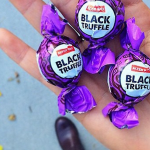Top GMOs To Know
What is a GMO?
A GMO, or genetically modified organism, is a plant, animal, microorganism or another organism whose genetic makeup has been modified in a laboratory using genetic engineering or transgenic technology. This creates unstable combinations of plant, animal, bacterial and virus genes that do not occur in nature or through traditional crossbreeding methods.
Current GMO Crops (Updated October 2017)
- Squash, 1995 (yellow crookneck/summer squash and zucchini)
- Cotton, 1996
- Soybean, 1995
- Corn, 1996
- Papaya, 1997
- Alfalfa, 2006
- Sugar beets, 2006
- Canola, 1999
- Potato, 2016
- Apples 2017 (arctic apple)
Types of GMOs
- The first type of GMO crop is called “Bt Toxin” (corn, soy, cotton). These crops are genetically engineered to have a built-in pesticide.When insects eat this GMO crop, their stomachs explode. These GMO crops are patented and registered as a pesticide with the EPA. An example is Bt Sweet Corn.
 The second type of GMO is called “Roundup Ready” crops. Roundup Ready crops have been genetically engineered to withstand “Roundup,” which is an herbicide, its active ingredient is glyphosate. Crops genetically engineered to be glyphosate-tolerant are often called Roundup Ready crops. Glyphosate kills plants by inhibiting an enzyme their cells use to synthesize amino acids, molecules the plants need to make protein. By introducing a gene into the plant cells, scientists have been able to produce plants that can survive herbicides, enabling farmers to apply glyphosate as a weed-killer without worrying about the effect on the actual crop. The issue with this type of GMO is that certain weeds became resistant to Roundup so biotech developed Roundup Ready Xtend products using another toxic chemical called dicamba. Dicamba is meant to wipe out the weeds that Roundup can longer kill. Monsanto’s biotech soybean was designed to resist herbicides, Roundup, and dicamba. Dicamba has long been used to kill weeds but prone to drifting into neighboring fields. According to the Organic and Non-GMO Report: “Crop damage has been extensive with 203,045 acres of soybeans along with significant damage to tomato plants, watermelons, cantaloupes, vineyards, pumpkins, gardens, trees, and shrubs in Missouri alone.” An example is Roundup ready corn.
The second type of GMO is called “Roundup Ready” crops. Roundup Ready crops have been genetically engineered to withstand “Roundup,” which is an herbicide, its active ingredient is glyphosate. Crops genetically engineered to be glyphosate-tolerant are often called Roundup Ready crops. Glyphosate kills plants by inhibiting an enzyme their cells use to synthesize amino acids, molecules the plants need to make protein. By introducing a gene into the plant cells, scientists have been able to produce plants that can survive herbicides, enabling farmers to apply glyphosate as a weed-killer without worrying about the effect on the actual crop. The issue with this type of GMO is that certain weeds became resistant to Roundup so biotech developed Roundup Ready Xtend products using another toxic chemical called dicamba. Dicamba is meant to wipe out the weeds that Roundup can longer kill. Monsanto’s biotech soybean was designed to resist herbicides, Roundup, and dicamba. Dicamba has long been used to kill weeds but prone to drifting into neighboring fields. According to the Organic and Non-GMO Report: “Crop damage has been extensive with 203,045 acres of soybeans along with significant damage to tomato plants, watermelons, cantaloupes, vineyards, pumpkins, gardens, trees, and shrubs in Missouri alone.” An example is Roundup ready corn.- The third type of GMO is a crop is genetically modified for a specific desired trait. They inject this desired trait, but the problem is that it has two promoters on either end of it. These promoters’ jobs are to wake genes up. An example is an arctic apple.
Are GMOs Safe To Eat?
The short answer is not according to independent science. GMO crops have not been proven safe by any third party regulators. Genetically engineered foods are different from other foods. Genetic engineering allows, for the first time, foreign genes, bacterial and viral vectors, viral promoters and antibiotic marker systems to be engineered into food. There is a myriad of new studies linking GMO crops to health issues namely, toxicity, allergies, antibiotic resistance, cancer, loss of nutrition, organ development, body metabolism, and immune function.
other foods. Genetic engineering allows, for the first time, foreign genes, bacterial and viral vectors, viral promoters and antibiotic marker systems to be engineered into food. There is a myriad of new studies linking GMO crops to health issues namely, toxicity, allergies, antibiotic resistance, cancer, loss of nutrition, organ development, body metabolism, and immune function.
Glyphosate, the main ingredient in Monsanto’s Roundup was deemed a probable carcinogen by the World Health Organization. There are extensive undeniable health issues related to glyphosate. I go into glyphosate health issues in great detail here.
To understand the myths and truths about GMOs, please use this guide from Earth Open Source.
How To Avoid GMOs
Once you know the GMO crops and how they’re made, you’d think it would easy to avoid them, but the truth is that GMOs are hidden under the various crop ingredients listed above, sadly that is not the case. To truly avoid GMO ingredients choose certified organic products and non-GMO verified products. Also please note that animal products such as yogurt may claim to be non-GMO verified all while the cows are ingesting GMO crops. Again, the safest bet is to choose certified organic when purchasing animal products.
Look for these two seals on products:
 Since GMOs are in over 80% of processed foods and they are not required to be labeled this is a good list to reference to avoid GMOs.
Since GMOs are in over 80% of processed foods and they are not required to be labeled this is a good list to reference to avoid GMOs.
Hidden GMO Ingredients:
aspartame
beneVia
baking powder
canderel
canola oil (rapeseed oil)
caramel color
cellulose
citric acid
cobalamin (Vitamin B12)
colorose
condensed milk
confectioners sugar
corn flour
corn masa
corn meal
corn oil
corn sugar
corn syrup
cornstarch
cottonseed oil
cyclodextrin
cystein
dextrin
dextrose
diacetyl
diglyceride
equal
erythritol
E951
food starch
fructose (any form)
glucose
glutamate
glutamic acid
glycerides
glycerin
glycerol
glycerol monooleate
glycine
hemicellulose
high fructose corn syrup (HFCS)
hydrogenated starch
hydrolyzed vegetable protein
inositol
inverse syrup
invert sugar
isoflavones
lactic acid
lecithin
leucine
lysine
malitolmaltose
malt
malt extract
malt syrup
maltodextrin
mannitol
methylcellulose
milk powder
milo starch
minoSweet
modified food starch
modified starch
mono and diglycerides
monosodium glutamate (MSG)
NutraSweet
oleic acid
phenylalanine
phytic acid
protein isolate
shoyu
sorbitol
soy flour
soy isolates
soy lecithin
soy milk
soy oil
soy protein
soy protein concentrate
soy protein isolate
soy sauce
starch
stearic acid
sugar (unless specified as cane sugar)
tamari
tempeh
teriyaki marinades
textured vegetable protein
threonine
tocopherols (vitamin E)
tofu
trehalose
triglyceride
vegetable fat
vegetable oil
vitamin B12
vitamin E
whey
whey powder
xanthan gum
The gold standard if you’re going to consume processed foods is products that carry both the organic and non-GMO label.
Be advised that the non-GMO label only protects you from GMOs. It does not protect you from synthetics, pesticides, herbicides, antibiotics, sewage sludge or any other dangerous additive. Certified organic is an investment in our food future and your health. If you forget what you’re investing in, this is a good graphic to pin.

Stay healthy!





Thanks.